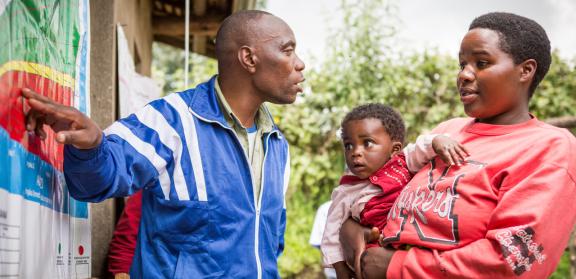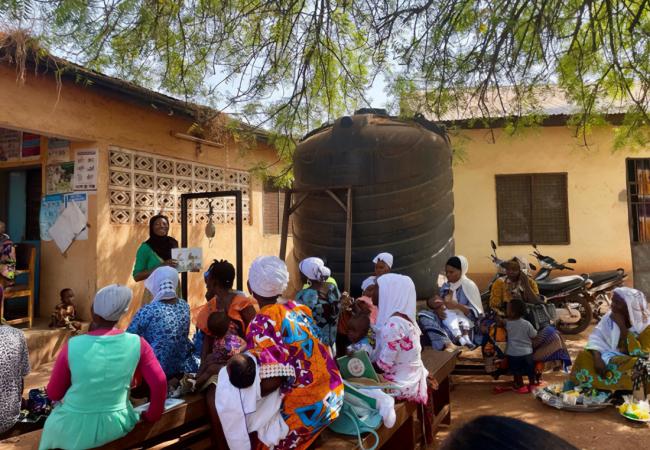
Strengthening nutrition outcomes requires strong country commitment and capacity. USAID Advancing Nutrition supported localization through support to local leadership, strengthening local systems, and providing technical assistance to key stakeholders. Taking a systems strengthening approach, we identified the actors who are well-positioned to support change, identifying the knowledge and skills needed to lead and deliver services at the regional and country level. In all of our work, we used a strengths-based approach, building on what already exists and amplifying results.
A specific focus on local leadership and strengthening local institutions was a key part of our country programs, which supported government, research institutions, and nutrition coordination mechanisms to improve local leadership and nutrition governance:
- In Mozambique and the Kyrgyz Republic, we used coaching and mentorship to strengthen leadership skills and organizational development for and with key nutrition partners.
- In Nigeria, we supported the State Committees for Food and Nutrition, state-level coordination bodies, setting operating standards and improving coordination
- In Tanzania, we supported skills strengthening with the Tanzania Food and Nutrition Centre in the design, implementation, data analysis and reporting on a food intake survey in one province as well as a country-wide qualitative study of food preferences and taboos.
- In Kenya, our localization work also helped strengthen systems at the national and sub-national levels and we led workshops with the BHA-funded Nawiri activity, a resilience and food security activity designed to put national and country governments at the center. This work resulted in the collaborative development of an evidence-based framework to understand the drivers of persistent acute malnutrition in the arid and semi-arid lands.
We also strengthened systems at the national level through a call to action for strengthening nutrition components of pre-service training, a landscape analysis and a tool to support revisions to pre-service training. Our New Partnerships Initiative program, the first specifically focused on nutrition, engaged four implementing partners in Kenya and Burkina Faso to strengthen skills in resource mobilization, strategic planning, and knowledge management. Our technical assistance helped partners clarify goals for organizational growth and build on existing experience to accelerate progress.
We also designed several activities to support USAID, implementing partners and others in their work supporting localization. We developed and implemented a learning agenda designed to provide recommendations for working with local organizations, based on our NPI and country programs work. In addition, we produced three briefs with guidance for measuring capacity strengthening programs, training and a case study. Lastly, we developed several competency lists, one for program staff and one for community health workers, to guide skills development in SBC, and a competency assessment tool especially for RFSAs in their work with local partners.
